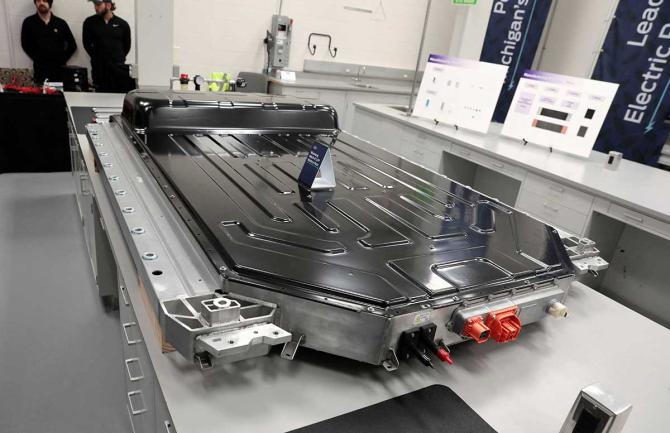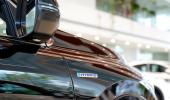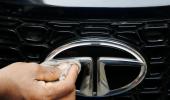Lithium-ion cells, primarily imported from China, are likely to become cheaper following punitive tariffs imposed by the US on Chinese battery cells.

Electric vehicle manufacturers are anticipating a 5-10 per cent drop in lithium-ion cell prices over the next 12 months, according to senior industry executives.
These cells, primarily imported from China, are likely to become cheaper following punitive tariffs imposed by the US on Chinese battery cells.
The tariffs, finalised by the Biden administration just days ago, are expected to severely impact Chinese exports of these batteries.
In a move to protect its domestic industry from what it perceives as unfair competition, the US government has raised the import tariff on lithium-ion electric vehicle (EV) batteries from 7.5 per cent to 25 per cent, effective from 2024.
This expected reduction in costs for vehicle makers comes on top of an earlier sharp drop driven by a surplus in China's battery production capacity.
The price of nickel manganese cobalt (NMC) batteries for Indian manufacturers fell to $90 per kWh in September, down from around $100 six months prior -- a 10% decline.
What's more, lithium iron phosphate (LFP) batteries have become even more affordable. Prices for LFP cells with respect to India dropped to $65-70 per kWh in September, compared to $75 six months earlier.

This considerable price difference between LFP and the more commonly used NMC batteries has prompted many companies to consider a shift to the cheaper option.
Ather Energy, for instance, mentioned in its draft red herring prospectus (DRHP) that it plans to use LFP batteries in some of its electric scooters, with tests already underway.
Car manufacturers like Tata Motors and MG Motors are already employing LFP batteries in some of their models.
“Currently, all EV companies import battery cells, mostly from China. While there are concerns that US-imposed tariffs on various products could push China to dump goods in India, there's no such fear with lithium battery cells. That's because no one manufactures them in India yet, and it will take until at least 2026 for any substantial domestic production to ramp up. We should seize this opportunity,” commented a senior executive from an electric vehicle company.
Ola Electric is expected to begin limited battery production from next year, though the initial output will be primarily for its own vehicles.
The company's factory will use the latest 4860 battery technology, which offers greater range than the 2170 batteries currently in use.
According to executives in the electric vehicle industry, a further drop in NMC battery prices to an anticipated $80 per kWh in the coming months will result in a saving of approximately Rs 5,400 on a 3 kWh electric scooter.
Shifting from NMC to LFP batteries could yield further savings of around Rs 5,000 per similar battery pack.
Cost relief?
US govt raised import tariff on Li-ion EV batteries from 7.5% to 25%
EV manufacturers are anticipating a 5-10% drop in lithium-ion cell prices over the next 12 months
Ola Electric may begin limited battery production from next year
Earlier, battery prices posted sharp drop over rise in China's production capacity
Price of nickel manganese cobalt batteries for Indian manufacturers fell 10% to $90 per kWh in Sep
Price for lithium iron phosphate cells dropped to $65-70 per kWh in Sep, compared to $75 six months earlier
Feature Presentation: Rajesh Alva/Rediff.com











